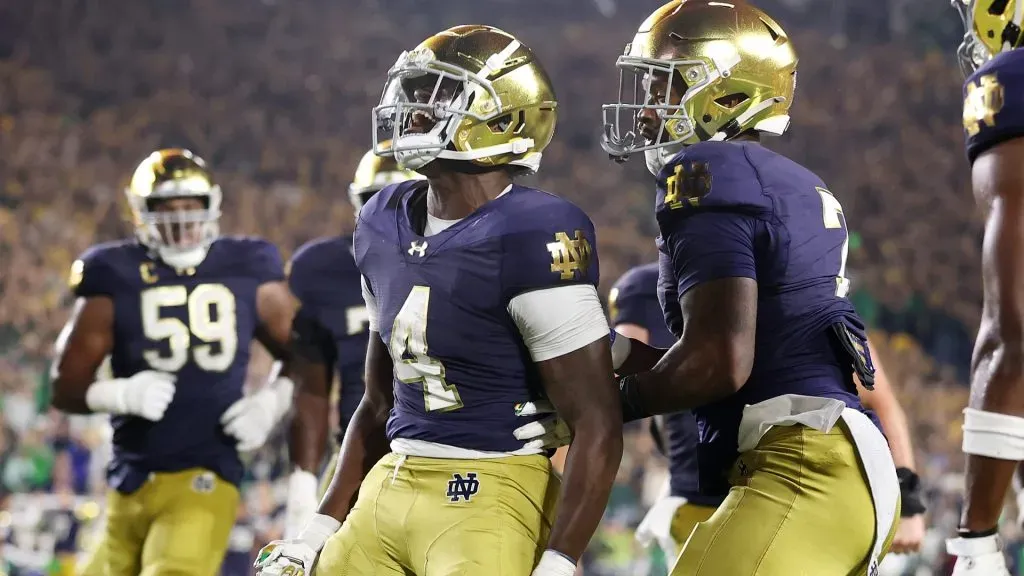For some time now, one of the most intriguing storylines in college football has involved the Notre Dame Fighting Irish — one of the few elite programs that remains independent of any conference. That status could soon change drastically for Marcus Freeman and his team. If things unfold the way they’re hoping, a move to either the Big Ten or the SEC could be on the horizon.
What’s all this about? According to a recent report, the Irish could be open to joining either of the two power conferences — if either league can convince the College Football Playoff to expand to 16 teams.
The news was reported by college football insider Brett McMurphy, who shared the update via his official X account (formerly Twitter), detailing this significant decision Notre Dame is considering for its future.
“Sources: Notre Dame promises to join Big Ten or SEC immediately, if either league can convince College Football Playoff to expand to 16 teams this season,” the insider reported via @Brett_McMurphy.

Jeremiyah Love #4 of the Notre Dame Fighting Irish.
The impact of Notre Dame’s decision
Joining either the Big Ten or the SEC would be a seismic shift for Notre Dame’s athletic identity. For decades, the Fighting Irish have thrived as a football independent, a unique brand with their own television deal and scheduling flexibility. However, with the Big Ten and SEC establishing themselves as the new super conferences, the financial and competitive pressures on Notre Dame are immense.
see also
The 30 highest-paid college football head coaches: Who’s earning the most?
Joining the Big Ten would be a more natural geographical and cultural fit. It would immediately renew historic rivalries with teams like Michigan and Michigan State, while providing a clear path to a conference championship and a guaranteed schedule of tough opponents.
The SEC, on the other hand, would offer a different kind of challenge, forcing Notre Dame into a more physically demanding conference and a different recruiting footprint. Both moves would likely lead to a massive increase in revenue for Notre Dame. Ultimately, though, either choice would mean giving up the cherished independence that has defined the program for so long, a major shift that would reverberate throughout the college football landscape.

